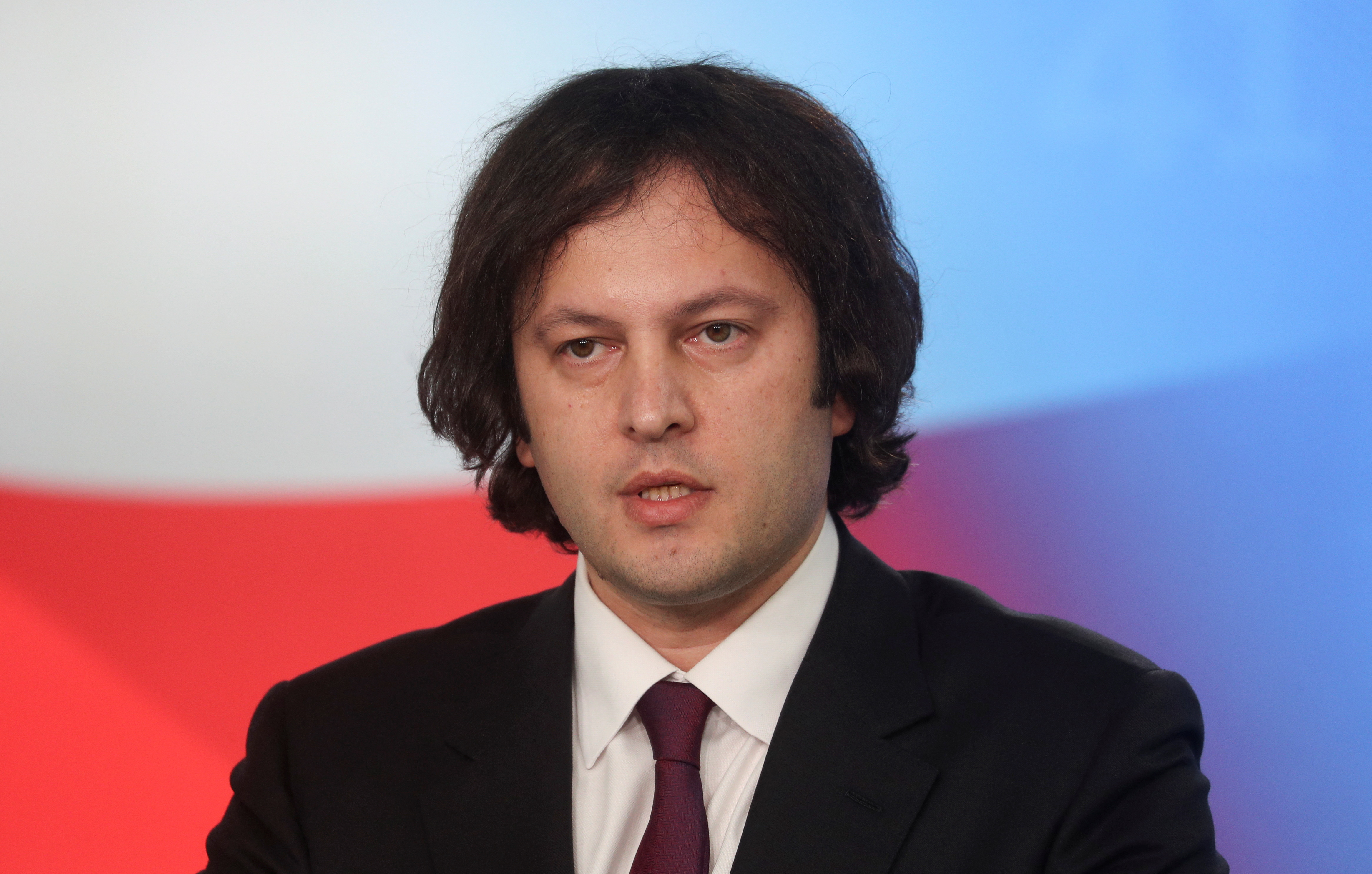Georgian Prime Minister Irakli Kobakhidze said on Saturday that the state would not allow a revolution to take place, after protests against his government’s sudden freezing this week of Georgia’s EU accession process.
Kobakhidze’s Georgian Dream party said on Thursday that it was halting European Union accession talks for the next four years over what it called “blackmail” of Georgia by the bloc, abruptly reversing a long-standing national goal.
EU membership is overwhelmingly popular in Georgia, with opinion polls consistently showing strong public support.
The freezing of application talks has been met with widespread anger in the country, which has the aim of EU membership written into its constitution.
The prime minister accused opponents of the halt to EU accession of plotting a revolution, along the lines of Ukraine’s 2014 Maidan protest, which ousted a pro-Russian president.
“In Georgia, the Maidan scenario cannot be realised. Georgia is a state, and the state will not, of course, permit this,” Kobakhidze was quoted as saying by Georgian media.
The country’s interior ministry said on Saturday that it had detained 107 people in the capital city of Tbilisi overnight during a protest which saw demonstrators build barricades along the central Rustaveli Avenue, and throw fireworks at riot police, who used water cannon and tear gas to disperse them.
Fresh protests are planned for Saturday night.
Hundreds of employees of Georgia’s foreign, defence, justice and education ministries, along with the country’s central bank have signed open letters condemning the decision to freeze talks.
Khvicha Kvaratskhelia, a star of Georgia’s national soccer team spoke out in favour of the protesters.
“My country hurts, my people hurt – it’s painful and emotional to watch the videos that are circulating, stop the violence and aggression! Georgia deserves Europe today more than ever!” Kvaratskhelia wrote on Facebook on Saturday.
The halt to EU accession caps months of deteriorating relations between Georgian Dream, which has faced allegations of authoritarian and pro-Russian tendencies, and the West.
The party is dominated by Bidzina Ivanishvili, a billionaire ex-prime minister who has taken increasingly anti-Western positions.
Georgian Dream won almost 54% of the vote in an October election that opposition parties say was falsified.
Both the ruling party and Georgia’s electoral commission say the poll was free and fair. Western countries have called for an investigation into violations.
The EU had already said Georgia’s application was stalled over laws against “foreign agents” and LGBT rights that it has described as draconian and pro-Russian.
Meanwhile, Georgian Dream has moved to build ties with neighbouring Russia, from which Georgia gained independence in 1991.
The two countries have no diplomatic ties since a brief war over a Moscow-backed rebel region in 2008, but restored direct flights in 2023, while Moscow lifted visa restrictions on Georgian nationals earlier this year.







Click here to change your cookie preferences